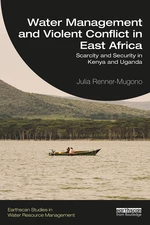This book examines the complex interrelationships between water availability, governance and violent and non-violent conflicts, drawing on in-depth case studies of Lake Naivasha in Kenya and Lake Wamala in Uganda. When international economic endeavours like flower farming, oil exploration and extensive rice growing are coupled with a government's prioritization of economic development, not only does this lead to the commercialization of water resources but it also creates conflicts between national, regional and local stakeholders. Often overlooked in existing literature, such is the case even in water abundant areas like Lake Naivasha and Lake Wamala. Presenting a comparative study, the book provides a unique perspective on multifunctional water use and illustrates how politically and economically motivated water use increases violent tensions over access to and the use of freshwater resources. The coverage stretches from international and national agencies to NGOs, economic stakeholders and local actors. The book evaluates the resilience and vulnerability of local actors' ability to access water and examines the nexus between the need to access water and the ability to influence access to water, taking into consideration both countriesâ economic development agendas. The book concludes by discussing strategies for reducing water-induced conflicts that can be applied to not only these cases but water conflicts across the globe. This book will be of great interest to scholars and professionals of water resource management and governance, African development, conflict resolution and sustainable development.
Price history
Dec 30, 2022
€41.95

